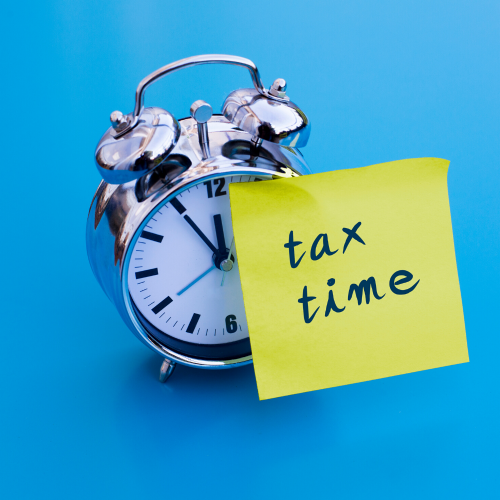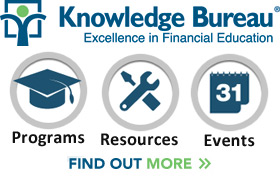
The UHT May Be Cancelled, But Vacancy Taxes Remain
As tax professionals, you are keenly aware of the constant changes our federal government makes to the Income Tax Act. Adjustments are made, and you must adapt. Not often, though, is a tax eliminated altogether. But in the case of the Underused Housing Tax (UHT), that is exactly what has happened – it was cancelled in the federal budget of November 4, 2025, but Canada’s underused housing taxes have not been eliminated. Here’s what you need to know for tax season 2026.Important Relicensing News for KB Students This June
 Some important things have been happening to kick the summer off for Knowledge Bureau students and graduates: June 30 is the relicensing deadline for designates who must meet the 15 annual CE credit requirement and submit their Certificate of Attestation by this date. Check out the handy Q&A Relicensing Guide below and remember to send in your Attestation to Standards of Conduct. We hope your professionalism continues to inspire new students to join the ranks of these esteemed credentialled professionals across the nation, by earning their designation, too.
Some important things have been happening to kick the summer off for Knowledge Bureau students and graduates: June 30 is the relicensing deadline for designates who must meet the 15 annual CE credit requirement and submit their Certificate of Attestation by this date. Check out the handy Q&A Relicensing Guide below and remember to send in your Attestation to Standards of Conduct. We hope your professionalism continues to inspire new students to join the ranks of these esteemed credentialled professionals across the nation, by earning their designation, too.
Higher Volumes, Complexity Highlight Tax Season 2021
 The latest key tax filing statistics for tax season 2021 - February 9 to May 25 – show more tax returns were filed than last year without the benefit of tax filing deadline extensions. As tax season 2021 now closes in on the June 15 proprietorship deadline exhausted tax specialists and highly involved financial advisors, will need to continue the pace for five specific reasons:
The latest key tax filing statistics for tax season 2021 - February 9 to May 25 – show more tax returns were filed than last year without the benefit of tax filing deadline extensions. As tax season 2021 now closes in on the June 15 proprietorship deadline exhausted tax specialists and highly involved financial advisors, will need to continue the pace for five specific reasons:
PBO vs Federal Budget: Bigger Deficit, Slower Growth
 The Parliamentary Budget Officer (PBO) released a post-budget economic and fiscal outlook last Thursday, on the same day the April 19, 2021 budget passed its second reading. It was a timely move, as the report focused on the impact of the $142.9 billion in new measures proposed – a number which excludes pandemic related support. It suggests Canada’s long-term economic outlook may be more expensive and less rosy than the budget estimated.
The Parliamentary Budget Officer (PBO) released a post-budget economic and fiscal outlook last Thursday, on the same day the April 19, 2021 budget passed its second reading. It was a timely move, as the report focused on the impact of the $142.9 billion in new measures proposed – a number which excludes pandemic related support. It suggests Canada’s long-term economic outlook may be more expensive and less rosy than the budget estimated.
Gone Fishing: Can CRA Do That?
 There are two kinds of fishing expeditions. For most of us, tales of the big one that got away tend to brighten moonlit campfire stories. But when it comes to fishing expeditions by the CRA, storm clouds can emerge quite quickly. That’s why it’s important to understand the law and taxpayers’ rights under it. Knowledge Bureau Report welcomes Marco Iampieri B.A., JD, M.B.A. to its editorial team to explain why.
There are two kinds of fishing expeditions. For most of us, tales of the big one that got away tend to brighten moonlit campfire stories. But when it comes to fishing expeditions by the CRA, storm clouds can emerge quite quickly. That’s why it’s important to understand the law and taxpayers’ rights under it. Knowledge Bureau Report welcomes Marco Iampieri B.A., JD, M.B.A. to its editorial team to explain why.
Important Role: OAS in Retirement Income Planning
 More than 60% of Canadians don’t have an employer sponsored pension, and as a result, the OAS is becoming increasingly important for those relying on reliable income in retirement. Advisors agree: 72% of more than 400 tax and financial professionals who answered the KBR April poll said “yes” to the question “Are you in favour of the OAS raise of 10% in 2022 for those age 75 or older?” However, many also left very insightful comments about the important role of public pensions in financial health in retirement.
More than 60% of Canadians don’t have an employer sponsored pension, and as a result, the OAS is becoming increasingly important for those relying on reliable income in retirement. Advisors agree: 72% of more than 400 tax and financial professionals who answered the KBR April poll said “yes” to the question “Are you in favour of the OAS raise of 10% in 2022 for those age 75 or older?” However, many also left very insightful comments about the important role of public pensions in financial health in retirement.
Re-Discovery: Find Out How to Move Your Clients from Fragility to Stability
 Four doctors, eight senior executives, 2 best-selling authors and several top wealth advisors: The thought leadership is outstanding at Virtual DAC 2021, October 17-19. Program Director Evelyn Jacks is highly enthused: “It’s never a small feat, but this year we are thrilled to offer the richest program ever to help advisors help their clients rediscover their financial stride.” Check out the details and register at early bird rates by June 30.
Four doctors, eight senior executives, 2 best-selling authors and several top wealth advisors: The thought leadership is outstanding at Virtual DAC 2021, October 17-19. Program Director Evelyn Jacks is highly enthused: “It’s never a small feat, but this year we are thrilled to offer the richest program ever to help advisors help their clients rediscover their financial stride.” Check out the details and register at early bird rates by June 30.

